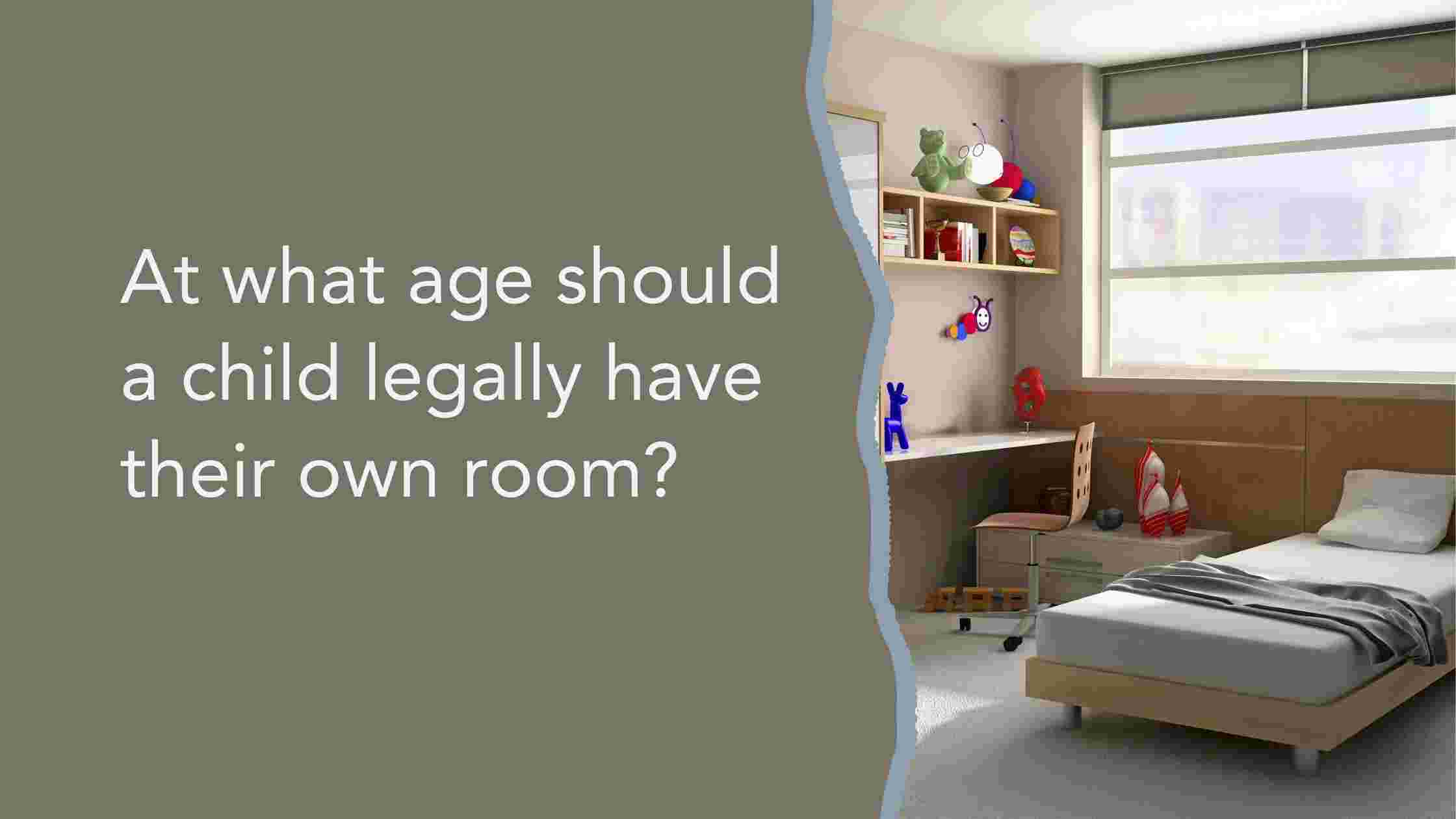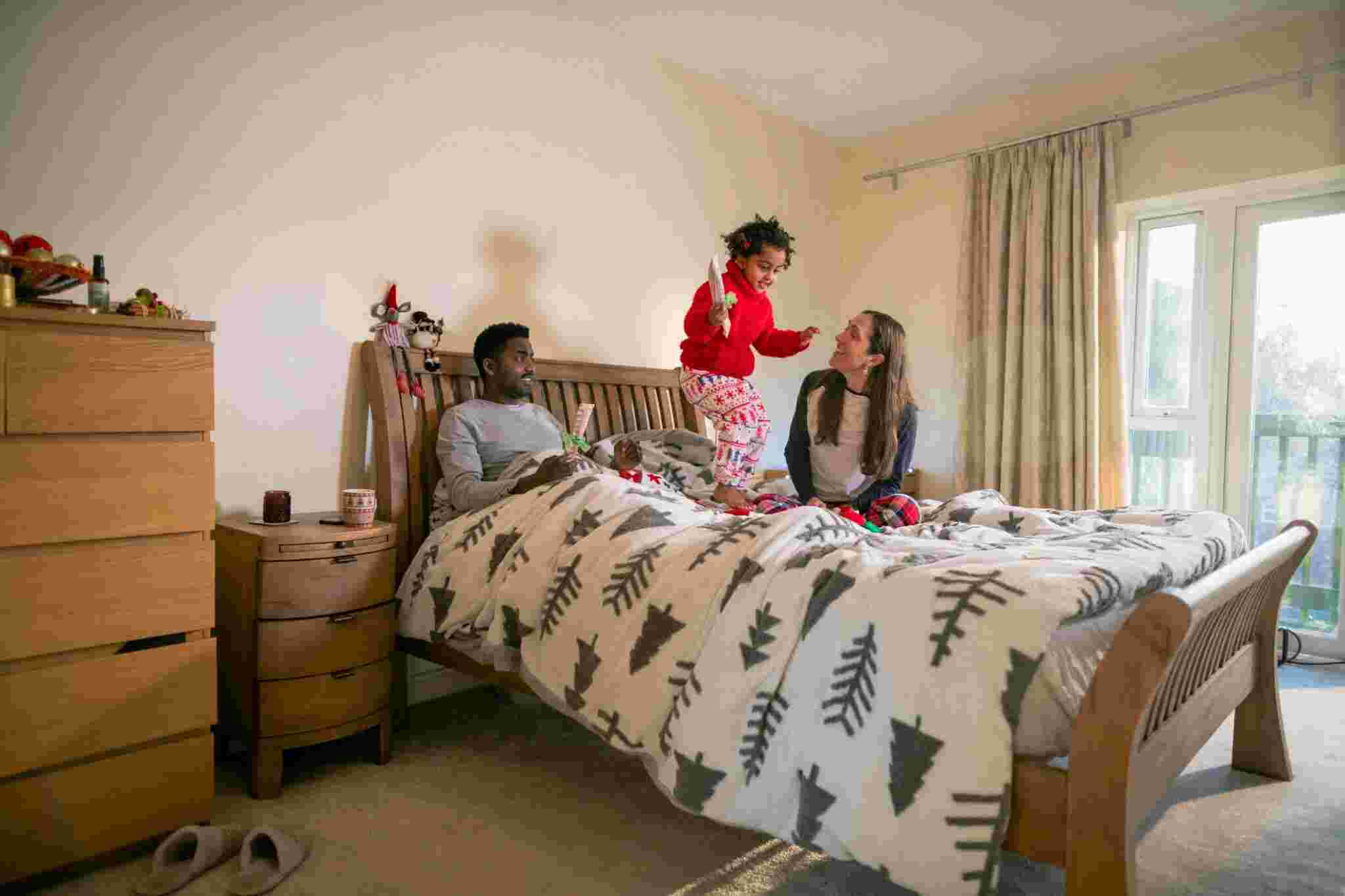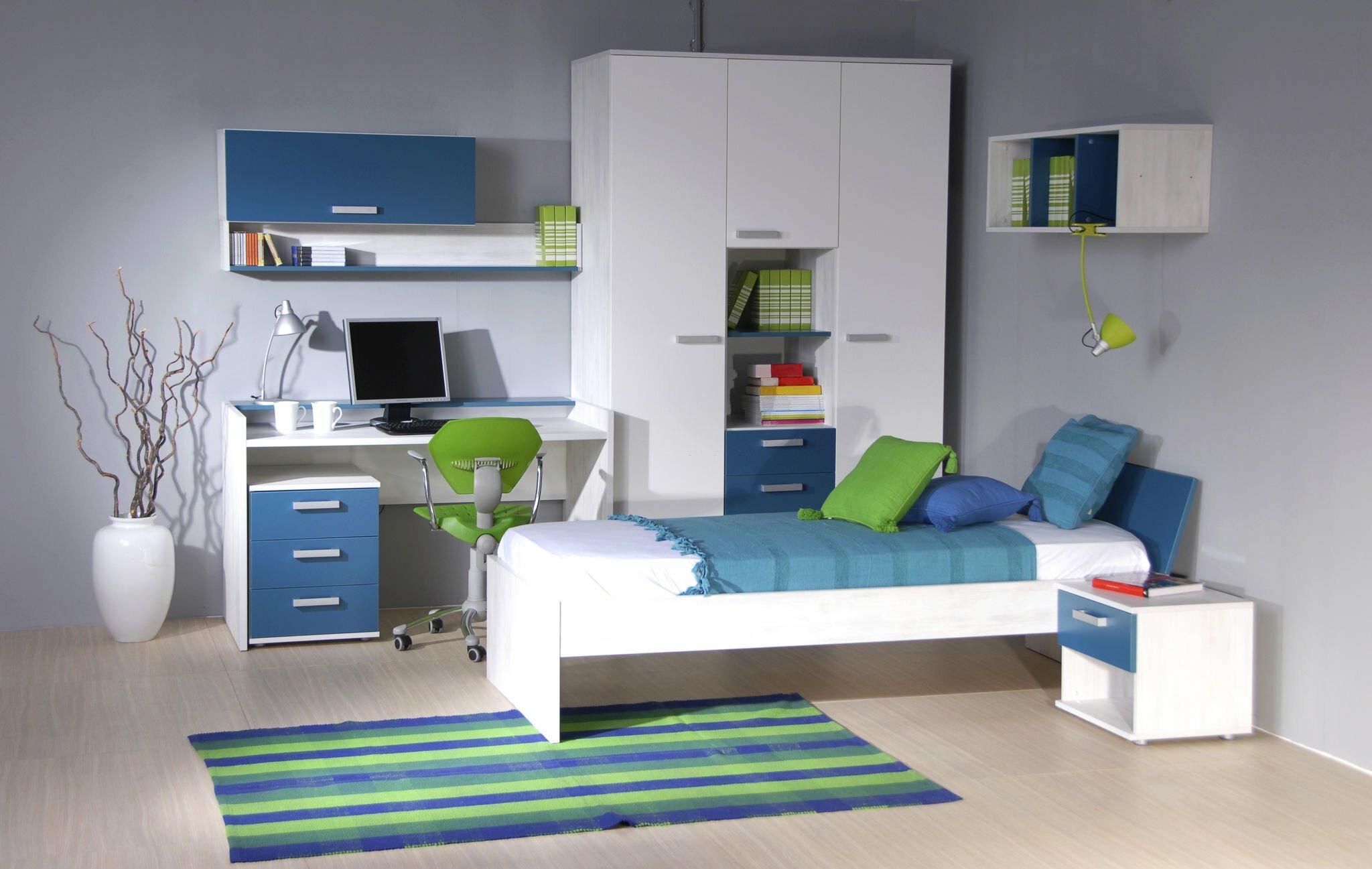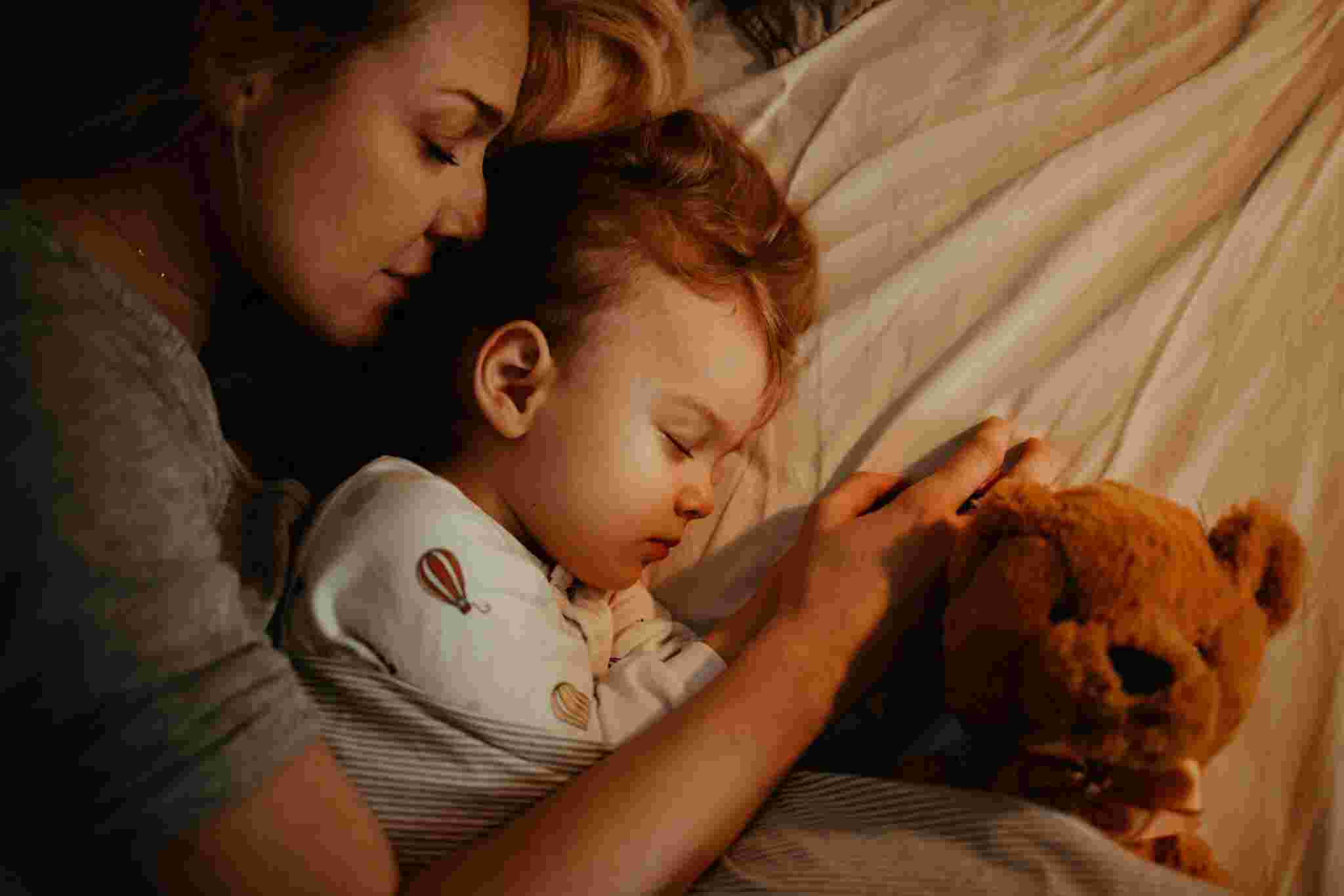As children grow, they may desire full independence and privacy. At what age should a child legally have their own room? This has become a topic of interest in the ongoing discussion surrounding family dynamics and child development.
In order to clarify when children might benefit from having a space of their own within the family home, this article examines the various factors at play while taking into account both psychological and practical aspects.
Children should have their own room legally at age 10 though Child Protection Services does not require kids to have their own room.
At what age should a child legally have their own room?
From the age of 5 years, a child should have their own room legally.
Laws regarding children having their own room vary by jurisdiction. In many places, there isn’t a specific legal age requirement for children to have their own room. Instead, it often depends on factors like the child’s well-being, safety, and the family’s circumstances.
- Infants: To facilitate easier care and observation, babies spend the first few months of life sleeping in their parents’ rooms.
- Toddlerhood: As kids get older, a lot of families move them into a separate room so they can have independent sleeping schedules.
- Legal Standards: Rather than defining an age, laws may prioritize protecting children’s safety and welfare. If living conditions are thought to be harmful, authorities may step in.
- Space and Resources: The decision to give kids their own rooms is influenced by a number of factors, including family size, available space, and financial means.
- Cultural Norms: Expectations from various cultures can influence sleeping arrangements for children, as they may differ from one society to the next.
Related Posts:
- What does it mean when a child is overly affectionate? Explained
- What to do if child doesn’t want to go to school?
What age does a child need their own room legally?
The legal requirements regarding children having their own room can vary depending on jurisdiction. In many places, there isn’t a specific legal age requirement for children to have their own room.
Instead, factors such as living conditions, safety, and well-being are considered. It’s advisable to check local laws or consult with legal professionals to understand specific regulations in your area.
It is always fun to share a room with your siblings. In fact, it’s enjoyable as you can chat, play, share your thoughts, secrets and eat together.
Hmmm!
That’s not the case for siblings that don’t get along with each other.
Two children between 0-9 years can share a room.
Two children between 0-15 years of age can share a bedroom if they are of the same sex.
Children aged 16-19 should have separate rooms.
Siblings of different sex should not share same room at age 10. Parents should be able to monitor their kids as they grow as they will need privacy.
It is advisable for siblings to have their own rooms especially of opposite sex at age six. If you can afford it, it’s best for each child to have their own room at six. If you can’t, let the kids use the the bathroom as privacy for change of clothes.
How do you encourage boundaries in kids?
Communication plays an important role when it comes to encouraging boundaries in kids. Below are the neccesarily steps you need to take in order to encourage boundaries in kids;
1. Maintaining boundaries:
Maintaining healthy personal boundaries will give your kids a good example to follow as they get older. Check in with yourself on a regular basis about how they’re doing.
2. Positive Reinforcement:
Congratulate and acknowledge a child for following rules and boundaries. Rewarding behavior encourages them to repeat it.
3. Empathy:
Assist kids in comprehending the rationale behind specific guidelines and limitations. This fosters empathy and a more profound appreciation for the significance of boundaries.
4. Age-appropriate Independence:
Give kids a sense of control and responsibility within set boundaries by progressively granting them age-appropriate independence.
5. Promote Open Communication:
Establish a setting in which kids are at ease sharing their ideas and worries. This encourages candid discussion regarding boundaries.
6. Problem solving skills:
Instruct kids in the art of problem-solving by helping them come up with solutions within predetermined parameters. They gain autonomy and the ability to solve problems as a result of this.
7. Set clear Consequences:
Clearly state what happens when someone crosses boundaries. Reinforcing the value of respecting boundaries requires consistency.
8. Establish Routine:
Regular schedules give kids structure and predictability, which makes it easier for them to comprehend and abide by boundaries.
9. Decision-Making:
Involve kids in age-appropriate decision-making procedures. This upholds general boundaries while fostering a sense of autonomy.
10. Teach About Consent:
Stress the value of respecting others’ personal space and choices while introducing the concept of consent at a young age.
11. Monitor Media Exposure:
Pay attention to the content your kids are exposed to and make sure it fits in with your set values and boundaries.
What does it mean for a child to have their own room?
For a child to have their room simply means a child having his own personal room without having to share it with anyone like the siblings or the parents.
Children that have their own room can benefit from the following;
- Responsibility: Having a room of their own can help teach kids many life lessons, such as cleaning, organizing, and washing things themselves.
- Personal style: Letting your children decorate and arrange their own room themselves gives them a sense of belonging. It develops their own personal style and allows them to feel free to express themselves.
- Self-confidence: It boosts their self-confidence and self-esteem and control over the given space of which is key to their growth. They can as well choose their furniture designs, wall paper and color they prefer to be there.
- Friends: They will have the ability to invite friends for sleepovers or just casual visits to their rooms. When they can interact and entertain their friends in their own rooms, they feel proud. This allows them to maintain a tidy and clean room.
- Privacy: Since they have their own rooms, the kids are more private. They are fearless when it comes to changing clothes, using their phones or watching movies, inviting friends, and keeping things tidy.
- Quiet: Your kids having their own room will also give them time to stay quiet, peaceful and maintain a serene environment. It gives room for the quiet kids and those that want to stay alone and read, study and relax.
How long can you share a room with your child?
Parents can share a room with their newborn baby till later months or years depending on what they like.
As long as it suits you, you are welcome to remain with your child for up to 11 years. If you and your child are at ease sharing a room, then you should be sharing one.
Can a child sleep in the same room as a parent?
A child can sleep in the same with the parent though it is not always advisable especially if the child is above five years old.
If you plan on staying with your child till he turns 11 years, you can create a plan on how to make it work.
- When Sleeping: You can put your child’s bed by the corner of the room and yours opposite his own. The kids space gives him room to stay and sleep.
- Storage: Everyone’s corner can be used for storing things for that person. You can make a big wardrobe for both of you in order to create more space.
- Playing: Your child can comfortably play in his own corner underneath his bed where his toys and playing tools are kept for him.
- Working tools: You can keep your working tools beside your bed in your own corner and you won’t feel disturbed while working.
Should a 3 year old have their own room?
The answer is yes. It serves as a little world for the children to be unique and separate from the rest of the family. You can actually help your child become an independent sleeper which will help him have sleep habits.
Set the sleeping mood. Set the room to a comfortable temperature of about 72°F.
Give him a warm bath and brush his teeth and use the same bed in the room.
Keep him company. Try and sleep in the new room with your child and do not force him to stay alone.
Pick a plan and be consistent and endeavor to check your bedtime routine.
Remember to put him in his bed when he is sleepy and sing a song for relaxation.
Is it normal for a 7 year old to sleep with parents?
It is normal for a 7 year old to sleep with parents. Cosleeping impacts the psychological development of the child. You can break Cosleeping with your child by;
How to break Cosleeping
- Reassure your child to face their fears and this will help them develop strong personality.
- Expect opposition to the and be prepared to utilize all available resources. Every child should sleep on their bed every night.
- Let them know that you are always there if the need arises.
- Avoid screen time an hour before bed and read a book or story to them for relaxation.
- Teach them the importance of everyone having their own space and sleeping alone.
- They should know the need to sleep early and wake up early.
Disadvantages of cosleeping
1. Sleep deprivation.
- Fear of the dark
- Loneliness
- Anxiety
- Nightmares
- Sleeping disorder
- Health conditions
- Mental illness
- It delays development of a child such as sleeping independently
- The kids don’t usually have sufficient sleep because of interruption.
- The sleep-wake cycle will be affected.
2. Personality development. Cosleeping makes kids not to develop strong personalities. They struggle with
- Confidence
- Decision making
- Memory loss
- Low energy
- Fatigue
- Depression
- Social anxiety
- Obesity
- Sleeping problems
- Lack of independent behavior.
Is it normal for a 4 year to sleep with parents?
It is natural for babies and kids to want to sleep with their parents. Many parents find themselves share bed with their child. It is normal for a 4 year old to sleep with their parents.
Benefits of sleeping alone
- Less difficulty falling asleep
- Tend to sleep longer longer and wake up less.
- Fewer problem waking up in the morning.
- Future sleep problems reduced.
Is it okay for a 5 year old to sleep with parents?
The answer is yes. Sleeping in the same bed with your child is your own decision. Your 5 year old would like to sleep with you because he is anxious and feeling upset, fear or anxiety.
However, bed sharing is not encouraged because;
It results in poor sleep for the parent.
It’s a habit that is difficult to break.
How to encourage your child to move into his own room
Gradual transition: Take your child to room when he is feeling sleepy and put him in the bed.
Be consistent: Establish the bedtime routine and be consistent with it. Keep your child in his bed and his room the whole week and make sure he sleeps there the whole night.
Reward your child: Always encourage your child to sleep alone in his or her room and bed and promise him or her a reward if the your child obliges.
At what age should boy and girl stop sharing a room?
It is recommended that children over the age of 10 should have their separate rooms.
There isn’t a specific age that requires opposite sex children to have their separate rooms. Parents should monitor their kid’s development and thereby make their decisions.
As kids grow and approaching puberty, they begin to become aware of the need for modesty and feel uncomfortable changing in front of a opposite sex sibling.
However, children can change in other areas and at separate times. They also find it difficult sharing a room and need more privacy and space.
At what age does a child need their own room legally in Illinois?
In Illinois, there isn’t a specific legal age requirement for a child to have their own room. However, the Illinois Department of Children and Family Services recommends that children of the opposite sex have separate sleeping areas once they reach the age of 5. Keep in mind that legal and recommended guidelines can vary, so it’s advisable to check the most recent regulations or consult with a legal professional for personalized advice.
At what age does a child need their own room legally in Ohio?
The legal age at which a child in Ohio can have their own room is not specified. Rather than defining a specific age for separate rooms, housing regulations and child welfare laws usually provide a safe and appropriate living environment. While choosing living arrangements, aspects like the child’s comfort and well-being be taken into account.
At what age does a child need their own room legally in PA?
Family law in Pennsylvania does not specify a minimum legal age at which a child must have their own room. Usually, the child’s general safety and well-being are the main priorities.
When deciding on custody or living arrangements, courts may take into account various factors, including the child’s age, maturity, and the living situation of the family.
When it comes to living arrangements, parents or legal guardians have the freedom to decide what’s best for their child.
At what age does a child need their own room legally in Indiana?
In Indiana, there is no minimum legal age at which a child must have their own room. Generally speaking, the goal is to create a home that is suitable and safe.
Age, gender, and the family’s housing situation are among the factors taken into account. The best interests of the child may come first when courts discuss housing arrangements during divorce or custody proceedings.
There is no law that prevents kids from sharing their room. Kids of all ages both infants, toddlers, young kids and teenagers are allowed to share their own room with their siblings.
At what age does a child need their own room legally in New York?
New York state laws do not meddle in the private home of the traditional family affairs. There is no legal minimum age in New York State for children to have their own room. Assuring the child’s safety, wellbeing, and suitable living circumstances are the main priorities instead.
Municipalities may have different housing regulations, so it’s important to check with the authorities in your area or get legal counsel for specifics. Whether a certain housing arrangement satisfies legal requirements for families with children may depend on a number of factors, including the size of the living area, the number of occupants, and general safety standards.
At what age does a child need their own room legally in Texas?
Texas law does not say what age is old enough for a child to have their own room.
There are no Federal or State laws that prevent children from sharing a bedroom. This means that children of any age be it infants, toddlers, young kids and teenagers are permitted to share a room with their siblings.
Parents are not prohibited from providing shared sleeping rooms for the children in their home. There is no law regarding bedrooms. There are factors that should be considered,
- The judge’s attitude on the subject.
- The age of the child
- The sex of the child
- sleeping arrangements
- the child’s privacy needs
- the overall living conditions.
- health
- educational needs,
- Whether there are two or more beds in a room.
At what age does a child need their own room legally in California?
The safety, well-being, and proper care of children are given top priority under California’s child welfare laws. While a child may not need to have their own room by a certain age, the main priorities should be attending to their basic needs, providing a safe environment, and guarding against abuse or neglect.
When a child’s safety is in danger, the California Department of Social Services and local Child Protective Services (CPS) organizations are involved in the assessment and intervention process. The general state of the home, upkeep, and the fulfillment of the child’s fundamental needs for clothing, food, and shelter are all taken into account.
At what age does a child need their own room legally in Massachusetts?
In Massachusetts, the best interests of the child are taken into consideration when making decisions about family law, including those pertaining to child custody.
This can involve elements like the child’s age, emotional and developmental requirements, the parents’ housing circumstances, and other pertinent factors.
The availability of separate bedrooms, the general living situation, and any particular circumstances that might have an impact on the child’s well-being are just a few of the factors that the court may take into account. But no explicit legal requirement exists that requires separate rooms for kids of a certain age.
And this is where I come to the conclusion of the question being asked, at what age should a child legally have their own room












